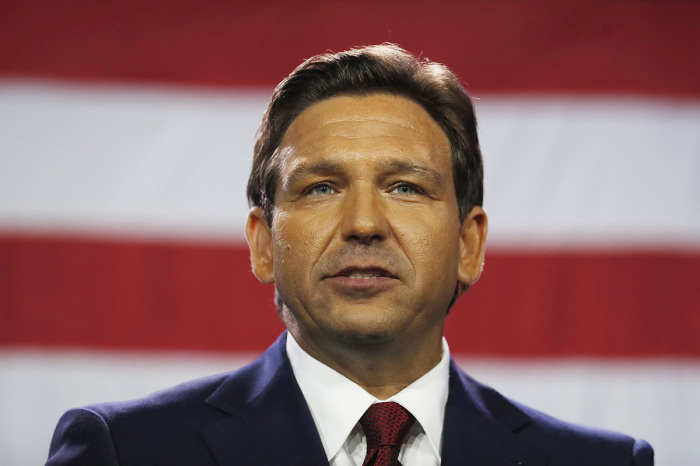Florida teachers can informally discuss LGBT issues in school under new settlement

A settlement reached earlier this week between parents, students, teachers and the state of Florida allows teachers to discuss sexual orientation and gender identity if it's not part of the classroom curriculum.
The settlement comes after a legal battle regarding Florida's Parental Rights in Education Act, which passed in 2022 and prohibits teachers from discussing such issues through formal instruction for kindergarten through third-grade classes.
Opponents say the vague wording caused confusion about what exactly could be discussed informally or what books could be placed on the bookshelves in school libraries.
Both sides are claiming a victory, with Florida Gov. Ron DeSantis' office calling it a "major win against the activists who sought to stop Florida's efforts to keep radical gender and sexual ideology out of the classrooms of public-school children in kindergarten through third grade." LGBT advocates say the settlement "effectively nullifies the most dangerous and discriminatory impacts."
The settlement stipulates that the Florida Board of Education must inform each of the state's school districts that it does not ban gay-straight alliances or general discussion of LGBT individuals and that the rules against bullying toward students because of their sexual orientation and gender identity remain in place.
The settlement established that the bill does not apply to library books not used in the classroom and that its strictures apply to both LBGT individuals and heterosexuals.
Other allowances in the settlement include permitting teachers to designate their classrooms as LGBT "safe spaces" with stickers, allowing students to talk about their sexual orientation in speeches, and letting LGBT teachers exhibit photos of their families.
"What the settlement now makes clear is that students can say 'gay' in Florida schools, that students can say 'trans' in schools ... and not have to deal with censorship from the weaponized vagueness of the law," said Joe Saunders, a former state lawmaker who serves as senior political director at LGBT advocacy group Equality Florida, according to The Associated Press.
Saunders maintained that the settlement made a necessary distinction between formal classroom instruction and general discussion.
DeSantis' office notes that the bill still prohibits classroom instruction about sexual orientation or gender identity in kindergarten through third-grade classrooms.
As hundreds of school districts nationwide have policies allowing staff to keep parents out of the loop when their trans-identified children are being socially transitioned to the opposite gender at school, the Florida bill requires schools to notify parents at the beginning of every school year about the healthcare services offered to students. Parents have the right to decline any services offered.
"We fought hard to ensure this law couldn't be maligned in court, as it was in the public arena by the media and large corporate actors," the state's General Counsel Ryan Newman said in a statement. "We are victorious, and Florida's classrooms will remain a safe place under the Parental Rights in Education Act."
After the legislation passed, opponents derided it as the "Don't Say Gay Bill," a phrase that gained notoriety in mainstream media headlines. DeSantis pushed back on the phrase as a "false narrative."
"We're going to make sure that parents are able to send their kid to kindergarten without having some of this stuff injected into their school curriculum," he said at the time.
Jamie Miller, who serves as executive director of the Florida GOP, said that despite the Democrats' claim of political victory, DeSantis accomplished his intention "to protect children from classroom instruction that was in conflict with our state culture."
Similar laws have passed in Alabama, Arkansas, Indiana, Kentucky, North Carolina and Iowa, though a federal court blocked enforcement of the law in Iowa. The law in Indiana remains before the 7th U.S. Circuit Court of Appeals.
Jon Brown is a reporter for The Christian Post. Send news tips to [email protected]




























